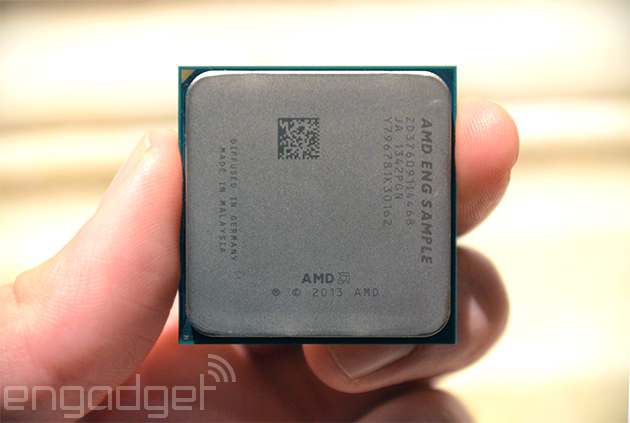A decade ago, AMD brought us the first dual-core x86 processor. Then, starting in 2008, the company came out with tri-core and quad-core designs in quick succession, leading up to octa-core chips in 2011's FX range as well as in the latest AMD-powered game consoles. Today, we're looking at a fresh leap forward, albeit one that will take a bit of explaining: a desktop and laptop chip called Kaveri, which brings together up to four CPU cores and eight GPU cores and gives them unheard-of levels of computing independence, such that AMD feels justified in describing them collectively as a dozen "compute cores."
Marketing nonsense? Not necessarily. AMD is at least being transparent in its thinking, and besides, if you've been following our coverage of the company's HSA project, and of GPU compute in general, then you'll know that there's some genuine technology underpinning the idea of GPU cores being used for more than just 3D rendering. Nevertheless, even if you don't go for the whole 12-core thing, AMD still makes some down-to-earth promises about Kaveri's price and performance -- for example, that it matches up to Intel chips that cost a lot more (the top Kaveri desktop variant costs just $173, compared to $242 for a Haswell Core i5), and that it can play the latest games at 30fps without the need for a discrete graphics card. These are claims that can -- and will -- be put to the test.%Gallery-slideshow160467%






















